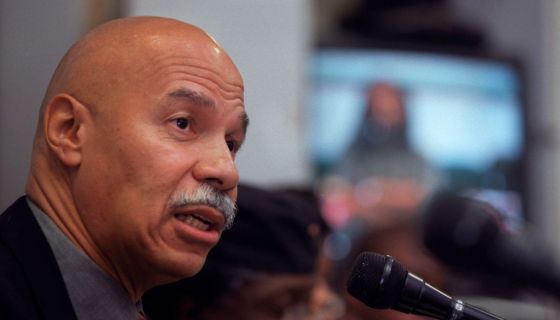There has been a swift outpouring of condolences in reaction to the news that renowned anti-apartheid icon Randall Robinson died last week at 81 years old.
Robinson, who was also a lawyer, author and the founder of TransAfrica, a nonprofit advocacy group that influenced U.S. foreign policy as it pertains to countries in the African diaspora, died Friday. Journalist Roland Martin tweeted on Saturday that Robinson’s sister confirmed the death in a text message that her brother “passed away yesterday at dawn.”
Robinson died in St. Kitts, the Caribbean island where he emigrated to in 2011 after becoming disenchanted with life in the United States.
Tributes have been pouring in across social media remembering Robinson fondly and noting how much of a loss the pro-Black humanitarian’s death is to the culture.
Robinson’s legal legacy
Robinson dedicated his life to uplifting Black people worldwide following his 1970 graduation from Harvard Law School, after which he was awarded a fellowship to work in Tanzania.
From the African American Registry:
From 1972 to 1975 Robinson was community development division director of the Roxbury Massachusetts Multi-Service Center after which he moved to Washington, D.C., as staff assistant to William L. Clay, U.S. representative from Missouri. From 1976 to 1977, he served as a staff attorney for the Lawyer’s Committee for Civil Rights.
It was Robinson’s legal and political training that would prove to be the springboard for his illustrious career of advocacy, which manifested itself in part in TransAfrica.
TransAfrica and Robinson’s anti-apartheid legacy
Notably, it was during his time at Harvard that Robinson first demonstrated his opposition to South African apartheid, a system that segregated citizens by race and spawned unthinkable discrimination.
After his return from Tanzania following his graduation from Harvard Law School, Robinson worked with the Congressional Black Caucus to place…
Read the full article here



